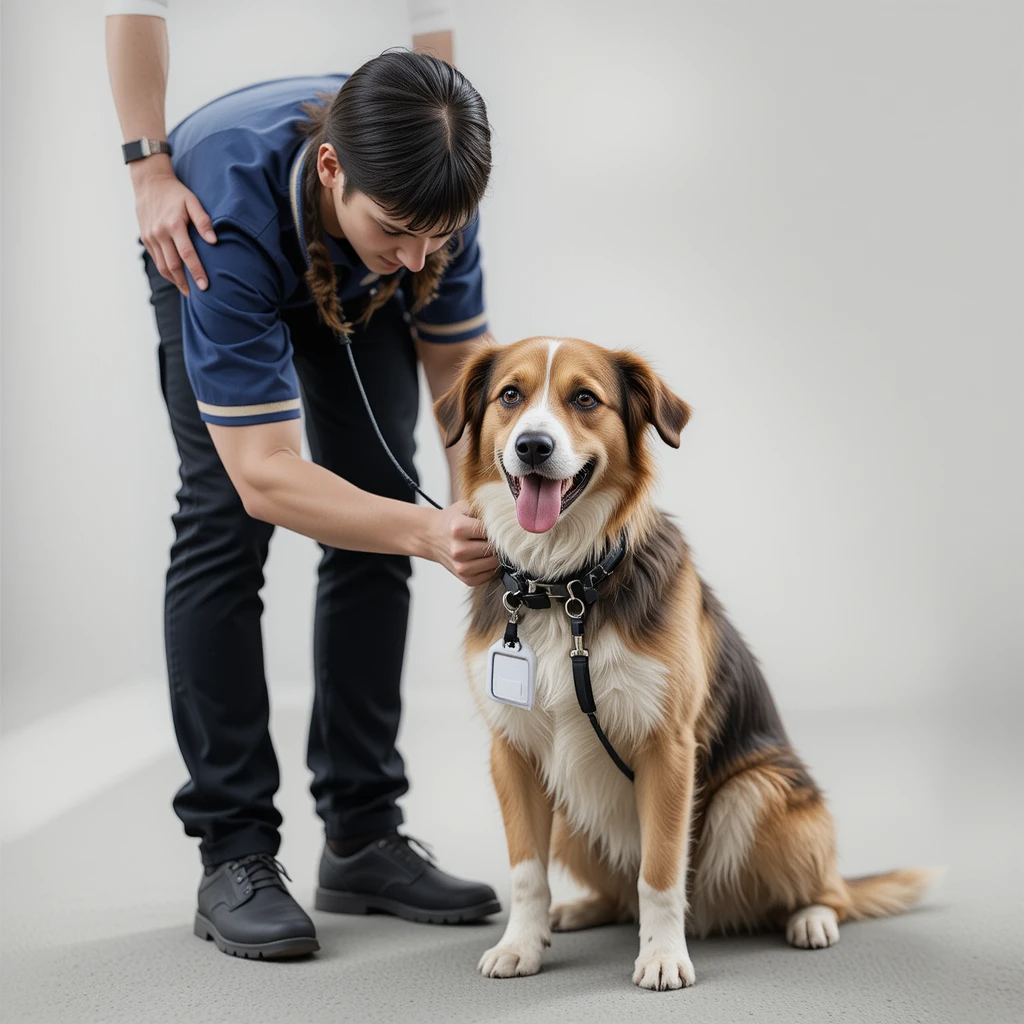Difference Between Dog Behaviorist and Dog Trainer is explained below: Dogs are considered to be one of the most loyal and loving pets. They are known for their ability to bring joy and companionship to their owners. However, owning a dog is not just about the fun and games, it requires a lot of responsibility and training. Dogs need to be well-behaved and trained to become well-adjusted members of society. This is where the role of a dog trainer and a dog behaviourist comes in.
When people think of improving their dog’s behaviour, they often confuse the roles of a dog trainer and a dog behaviourist. A dog trainer typically focuses on helping your pet with obedience training and teaches them simple commands like sit, stay, and come. They work with dogs to ensure they follow instructions, which helps them become well-adjusted members of society. On the other hand, a dog behaviourist handles more complex behaviour problems such as aggression, anxiety, or other emotional issues that require deeper understanding. They are skilled in addressing the root cause of these behaviours, which is vital for your dog’s long-term emotional well-being.

A dog behaviourist helps your furry friend by providing emotional support and using methods like behaviour modification to resolve these deeper issues. In contrast, a dog trainer uses techniques to correct and improve your pet’s obedience and responses. Both professionals play an important role in your dog’s development, but they target different aspects of their behaviour. If your dog is facing serious behaviour problems, such as fear or aggression, a behaviourist might be the right choice. But for basic training and building strong communication, a trainer can work wonders.
Table of Contents
Difference Between Dog Behaviorist and Dog Trainer
Dog Trainer:
A dog trainer focuses on teaching your dog specific commands and basic obedience. Their work usually involves using positive reinforcement and sometimes correction-based techniques to encourage good behaviour. They help dogs learn commands like sit, stay, come, and leave it, and can also train them in more advanced skills such as agility training and hunting. Although dog trainers may assist with behavioural issues, their main goal is to ensure the dog listens and follows commands rather than addressing deeper emotional or psychological struggles. A dog trainer works with dogs of any age or breed, aiming for general obedience and well-adjusted behaviour.
Dog Behaviourist:
On the other hand, a dog behaviourist deals with deeper behavioural issues such as aggression, anxiety, and fear. They focus on understanding the reasons behind these behaviours and use methods like counter-conditioning and desensitisation to help dogs overcome their fears or aggression. While a dog trainer works to teach basic obedience, a dog behaviourist addresses serious emotional and behavioural problems that may stem from trauma, abuse, or past experiences. If your dog is struggling with more than just simple commands, such as separation anxiety or fear of people, a behaviourist is the professional to seek.

The Roles of a Dog Trainer and a Dog Behaviourist
Dog Trainer:
The main job of a dog trainer is to teach dogs basic obedience commands and improve their behaviours. Whether you have a puppy or an adult dog, a dog trainer helps them learn good manners and reduce inappropriate behaviours. This improves the bond between you and your dog by ensuring they understand what is expected from them. A dog trainer may also work with dogs who have specific training needs, like service dogs or therapy dogs, and train them for activities such as agility training, obedience competitions, or even hunting.
On the other hand, a dog behaviourist deals with deeper behavioural issues such as anxiety, aggression, or fear. While both professionals work to improve your dog’s well-being, a trainer focuses on commands and good manners, whereas a behaviourist addresses emotional and psychological struggles. If your dog faces serious behavioural problems, like those related to past trauma or separation anxiety, a behaviourist would be the right choice. A dog trainer works on obedience, while a dog behaviourist helps with emotional healing and behavioural modification.
Dog Behaviourist:
The role of a dog behaviourist is to focus on identifying and addressing behavioural issues that may be affecting a dog’s life and their relationship with their owner. They work with dogs who have serious problems like aggression, anxiety, and fear. A dog behaviourist uses their expertise to dig into the underlying cause of the problem and create a tailored treatment plan that suits the needs of the individual dog. If a dog has experienced trauma or abuse, the behaviourist helps with rehabilitation to make the dog more adoptable and improve their chances of being placed in a new home.
While a dog trainer typically focuses on teaching obedience commands and good behaviour, a dog behaviourist goes deeper by addressing emotional struggles and psychological challenges. Whether a dog needs help learning basic commands or dealing with trauma-induced behaviours, both professionals play important roles. However, when dealing with serious emotional issues, the expertise of a dog behaviourist is essential to help the dog heal and adjust.
Navigating the Crucial Differences Between Dog Trainers and Behaviourists
Understanding the difference between a dog trainer and a dog behaviourist is important when seeking help for your furry friend. Dog trainers focus on teaching dogs specific commands and behaviours, while dog behaviourists address more serious behavioural issues such as aggression and anxiety. Both professionals play a crucial role in helping dogs become well-behaved and well-adjusted members of society. When choosing a professional, it’s important to look for someone with experience and expertise in working with dogs and who uses positive reinforcement techniques to promote good behaviour.
When you’re choosing a professional to help your dog, it’s important to understand the difference between a dog trainer and a dog behaviourist. Dog trainers are experts in teaching dogs specific commands like sit, stay, and come. They also work on basic obedience and improving behaviour through methods like positive reinforcement. They help dogs learn good habits and improve their relationship with their owner.
On the other hand, dog behaviourists address deeper emotional or behavioural issues like aggression, anxiety, and fear. Their goal is to understand the root causes of these behaviours and use methods such as counter-conditioning and desensitization to help the dog overcome these struggles. While both professionals play a vital role in a dog’s development, the trainer focuses on obedience and basic behaviour, while the behaviourist works on emotional and psychological healing.
Is a Dog Behaviorist the Same as a Dog Trainer?
No, they are different professionals with different areas of focus and expertise.
- Dog Trainers are primarily focused on teaching dogs obedience commands and basic manners. This includes things like:
- Sit, stay, heel, come, leash walking, crate training.
- Helping puppies or newly adopted dogs acclimate to their environment.
- Curbing common but mild issues like jumping, pulling on leash, or not coming when called.
- Trainers may or may not be certified, and their approach varies (positive reinforcement, balanced training, etc.).
- Dog Behaviorists, also called Canine Behavior Consultants or Veterinary Behaviorists (if medically licensed), specialize in the emotional and psychological causes of problematic behavior. They work on:
- Aggression, separation anxiety, extreme fear, compulsive behaviors, phobias.
- Underlying behavioral conditions that affect a dog’s mental well-being.
- Behavior modification plans grounded in behavioral science and often require collaboration with a vet for possible medication.
In short: Trainers shape behavior through teaching, while behaviorists treat behavior through diagnosis and therapy.

What Does a Dog Behaviorist Cost?
The cost can vary widely depending on location, qualifications, and session structure.
Here’s a general breakdown of typical fees:
| Service Type | Price Range |
|---|---|
| Initial Evaluation (60–90 minutes) | $150–$400 |
| Hourly Follow-up Sessions | $100–$250 |
| Package Deals (e.g., 3–5 sessions) | $500–$800 |
| Veterinary Behaviorist (medical professional) | $300–$600 for the initial consult |
| Virtual Sessions (Remote Consults) | $75–$150 |
Factors that influence cost:
- Whether the behaviorist is certified or a licensed vet.
- If the issue is medical/behavioral (requiring medication).
- Travel fees for in-home consultations.
- Region (urban areas tend to be more expensive).
When Should a Dog See a Behaviorist?
Your dog may need a behaviorist when behaviors go beyond training issues and signal distress, trauma, or risk to others:
Consider a behaviorist if your dog is:
- Aggressive: Growling, lunging, snapping, or biting at people or other animals.
- Fearful or Anxious: Excessive barking, shaking, hiding, or inability to relax even in safe environments.
- Suffering from Separation Anxiety: Destructive behavior, howling, or attempts to escape when left alone.
- Exhibiting Obsessive/Compulsive Behaviors: Tail chasing, fly snapping, chewing paws, or pacing.
- Traumatized or Reactive: After experiencing abuse, neglect, or an attack by another dog.
These behaviors often stem from underlying psychological triggers that a trainer may not be equipped to handle.
Are Dog Behaviorists Worth It?
Yes — especially if your dog’s behavior is impacting safety, quality of life, or long-term well-being.
Here’s why hiring a dog behaviorist is often worth the investment:
- Expert Diagnosis: They identify the root cause of behavioral issues — not just the symptoms.
- Customized Plans: You receive a targeted plan based on your dog’s history, environment, and temperament.
- Prevents Escalation: Early intervention can stop a manageable issue from becoming dangerous.
- Improves Bonding: Behaviorists help restore trust and communication between you and your dog.
- Safety and Confidence: Working with a behaviorist can make handling unpredictable dogs safer and less stressful.
Bonus: If a dog is at risk of being surrendered or euthanized due to behavior, a behaviorist may be a life-saving option.
Why Stimulus Control Trumps Impulse Control 2025
Understanding Fear Aggression in Dogs 9 Tips To Control It
